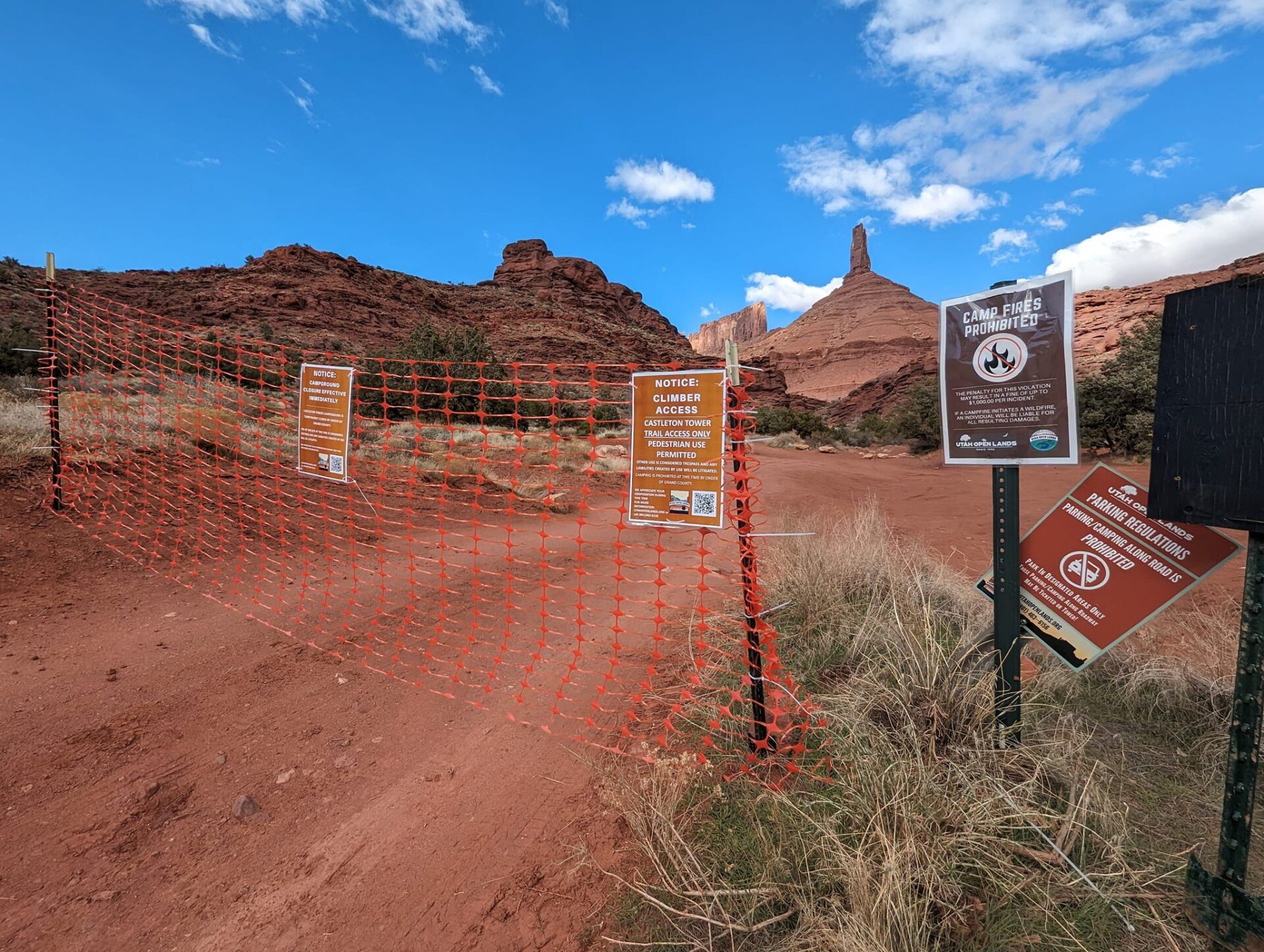“A free democracy is often messy,” begins judge Ryan Harris in his opinion filed in the Utah Court of Appeals on the case of Rebecca Davidson, Tara Smelt and Tayo, Inc., v. Chris Baird, Connie McMillan, Jim Stiles and The Canyon Country Zephyr.
Just how messy?
Harris continues, “[T]hose willing to serve in public positions and who are entrusted with appropriately spending the public’s money must be ‘individuals of fortitude, able to thrive in a hardy climate,’ and willing to put up with robust, even sharp criticism of their actions by members of the public whom they represent.”
Davidson, the plaintiff in the case, is the former city manager of the City of Moab. Her current area of residence is unknown; she left Moab after she was terminated from her job and filed several lawsuits related to her employment at the city.
The appellate court in Salt Lake City recently considered her appeal of her defamation suit against Baird, McMillan, Stiles, and the Canyon Country Zephyr that had been tossed out by a lower court. Judge Harris’ comments and the appellate court’s final decision is to affirm the lower court’s decision to dismiss the defamation suit.
“I hope that this decision empowers the citizens of the Moab area to express their opinions with as much enthusiasm, or ferocity, as they feel necessary to be heard,” Chris Baird told the Moab Sun News when asked for comment.
Baird, at the time of Davidson’s employment with the city, was a Grand County Council member who became an outspoken critic of Davidson. He wrote an opinion column for the Moab Sun News in 2016 stating, “Last October, I was made aware of a serious financial impropriety concerning the city’s procurement of IT services. Tara Smelt, who lives with Moab City Manager Rebecca Davidson, registered a business, Tayo, Inc., at Davidson’s and Smelt’s home address immediately prior to the city’s paying the company several thousand dollars at the end of June 2015 for IT services. This presents a clear conflict of interest between Tayo, Inc. and Davidson. State law requires that such conflicts be declared. As far as I know, no such declaration was made.”
In considering if statements such as Baird’s were defamatory, judges in the lower 7th District Court and the Utah Court of Appeals asked Davidson’s attorney to point exactly to where Baird’s worst comments about Davidson are — to which references were made, but no list of comments was produced for either court to consider. The court itself attempted to make a list of comments using a brief Davidson’s attorney filed, which included Baird’s statements in his Moab Sun News column.
The appellate court said that after Baird published his column, an independent audit was conducted at the City of Moab in which it was found that the city had followed its existing policies and procedures. Baird then responded to the independent audit by saying that he and the auditor agreed that “in principle, Davidson’s conduct should have been prohibited” and he advocated for a “loophole” to be closed and that “greater care be taken in future expenditures of public funds.”
Davidson, however, had informed officials at the City of Moab that she did have a relationship with Smelt, the proprietor of the IT services. Davidson’s disclosure was made to then-mayor Dave Sakrison, Moab City Recorder Rachel Stenta (now the city’s finance director) and Moab City Attorney Chris McAnany, but it was not required to be publicly disclosed.
Attorney Christina Sloan (now the Grand County Attorney) provided legal advice to the formation of Tayo, Inc., in providing the IT services to the city.
A 2015 email exchange between Smelt and Sloan was delivered to the Moab Sun News. In the copy of the email, Smelt asked Sloan for advice over concerns about Baird’s public comments related to her company, that included Smelt’s hiring of “an attorney” (Sloan) to “go after him”; Smelt asked Sloan to stop talking to Baird about her situation after it was disclosed by Sloan that she was Baird’s friend.
Sloan’s reply was to “let your work stand for itself,” and “the mere fact of your relationship to Rebecca (Davidson) is not fatal to your work with the city.”
Sloan also speculated in the email that the reason Baird was focused on Smelt was due to his displeasure over a city employee losing his job.
“My only guess as to why you is that it’s well known that he is very upset about the way that David Olsen was terminated, so he started looking around and found out that you and the city manager know each other. That’s speculation, but it makes sense,” Sloan emailed, ending with saying that “If there is no there there [sic], Chris will go away.”
Baird eventually resigned from council, but not before the community at-large railed against Davidson on social media. Baird was elected in November, and is currently serving as the Grand County Clerk/Auditor.
Turning around and suing Baird and others was not about suppressing anyone’s freedom of speech, Davidson told the Moab Sun News by email.
“The intention of this lawsuit was … to bring forward that with the freedom of speech comes great responsibility,” Davidson wrote on Jan. 22. “It is necessary to find the truth and speak of that, rather than make false assertions filled with vitriol and spite.”
Davidson wrote that for almost a year, people from Moab made comments online that were false about her, her family and her personal life, including “a number of slanderous and racially charged statements that were vile and deplorable.”
“We believe that in this situation some people acted carelessly and irresponsibly when they made those nonfactual declarations,” she wrote. “Those kinds of statements are harmful to us and anyone else they are aimed at, and cause irreparable harm.”
Davidson wrote that the social media platform (a Facebook page called Citizens for Transparency in Local Government) and the blog (The Canyon Country Zephyr) “allowed people to twist the posts into a horrible brewing competition of who could say the worst things.”
It’s still a right of the people to do so, the courts said.
“As we discuss,” the appellate court judges wrote, “because Davidson is a public official and the controversy in this case deals with the expenditure of public funds, plaintiffs (Davidson, et al) must prove more than merely the existence of false statements about them; they must demonstrate that defendants acted with ‘actual malice’ in making the statements in question.”
Public issues are wide-open, uninhibited and robust, the courts have ruled, including “unpleasantly sharp attacks on government and public officials.”
“This decision affirms that the grievances of the public are given wide latitude in their expression under law, and that further, such latitude is essential to fulfilling the intent of the First Amendment,” Baird said on the court’s final decision.
When asked to weigh in on the outcome of the appellate court’s decision, Sakrison said he agrees with the court’s decision and is happy for Baird. He was the mayor during Davidson’s tenure at the city. “You’re in the public spotlight and you’re subject to criticism,” Sakrison said. “You can’t please all people all the time. There are always going to be people with negative comments, but that’s part of being in politics.”
Former city manager claims to suffer ‘irreparable harm’ from online comments
“There are always going to be people with negative comments, but that’s part of being in politics.”




